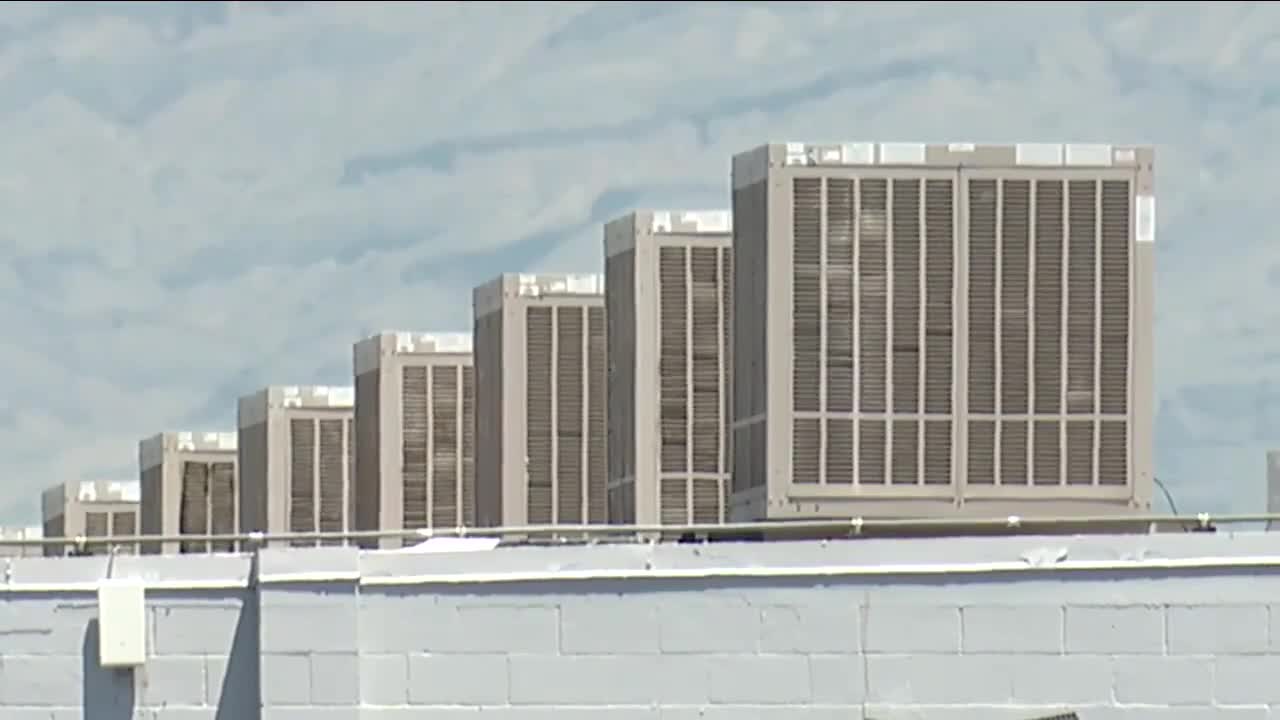LAS VEGAS (KTNV) — During these triple-digit temperatures, business owners find ways to keep their employees cool.
After August 31, the Las Vegas Valley Water District said no new permits will be allowed for commercial and industrial buildings to use evaporative cooling systems.
Business owners, like Jeffery Mannaa, say he relies heavily on his evaporative cooling systems.
"They are a lifeblood of our business, especially in the summertime, they mean everything to our guys, to us," he said.
Mannaa says at his family's business, National Stone LV, these cooling systems are much more efficient and cost-effective compared to other standard air conditioning units.
"For us, it is not something honestly that we can afford. We are a family business, we are a smaller business," he said.
Back in November last year, the Las Vegas Valley Water District approved a measure to no longer allow permits for evaporative cooling systems in future commercial and industrial buildings to be placed after August 31 of this year.
"I feel terrible," Mannaa said. "Honestly, that sets a huge chunk of change that has to come out of their pocket to keep their people cool."
A spokesperson from the water district says these cooling systems are Southern Nevada's second-largest user of water, wasting about 10 percent of Southern Nevada's Colorado River allocation.
Michael Zimmer owns the Nevada Cooler Pad, his business has been selling evaporative cooling systems for 70 years. He says there are more than 60,000 of these cooling systems, and he understands while they use a good amount of water, they are efficient and cost-effective."
Zimmer says a change like this may create more problems for the valley.
"My biggest concern right now is whether or not we have enough energy available to us through NV Energy through our power sources to provide to the increase of demand," Zimmer said.
The chairman of Goettle Air Conditioning and Plumbing, Ken Goodrich says there is a big difference between using evaporative cooling systems and traditional HVAC systems.
"They will use 3 to 5 times more energy. It will require modifying the buildings with more insulation, and many properties don't have enough power to add HVAC," Goodrich said.
Mannaa says he is thankful to have been able to get his cooling systems in place before the changes go into effect.
"In an older industrial building like this, they are everything," he said.




